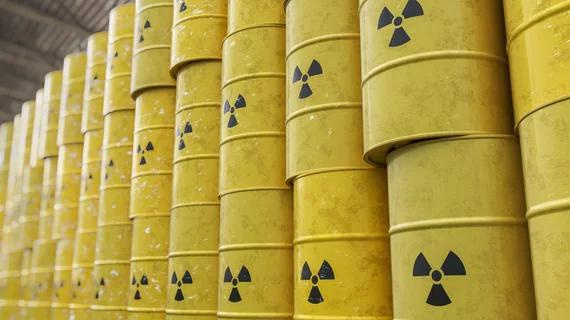New details emerge on looming medical isotope shortage
New details have emerged regarding the impact a downed high-flux reactor will have on the supply of medical isotopes.
A letter shared by the Nuclear Medicine Europe (NMEU) Emergency Response Team (ERT) indicates that the supply of Mo-99 and Tc-99m—the most commonly utilized medical isotopes in the world—could be cut by as much as 40% until the HFR in Petten, Netherlands is up and running again. The shortage is expected to start as early as this week and persist until necessary maintenance, which could take “at least a few weeks,” is completed.
A structural issue in with a pipe within the HFR is to blame for the delay. An inspection revealed that the pipe will require immediate repair, though experts originally anticipated that the repair could be done at a later date in December. This change, in conjunction with planned maintenance of other reactors is likely to trigger “a significant impact on the supply of medical radioisotopes in the coming weeks,” the ERT’s update says.
The unexpected shutdown of the HFR at Petten is part of ongoing maintenance issues standard to operating very old reactors. It has been in operation since 1961 and is now 63 years old. It is one of six reactors, five of which are over 50 years old, responsible for the world’s supply of Mo-99.
The reactor at Chalk River Laboratories in Ontario, Canada, used to make the majority of the United States’ Mo-99 isotopes but, like the HFR in Petten, it also had a string of unplanned outages for emergency maintenance. Each time it shut down it caused SPECT tracer shortages throughout the U.S. The maintenance issues were part of the reason it was decommissioned in 2018. At the time it was the oldest nuclear reactor still in service, having started service in 1957.
This latest shortage will inevitably affect medical procedures requiring radioisotopes across the world, but especially in the U.S, as the states account for the greatest utilization of Mo-99 and Tc-99m (more than 20 million procedures annually). This highlights a larger issue about the country’s reliance on foreign suppliers for radioisotopes vital to so many medical practices.
Currently, it is unknown how long this latest isotope shortage is expected to last. NMEU is encouraging practices to contact their suppliers for information specific to their region.

